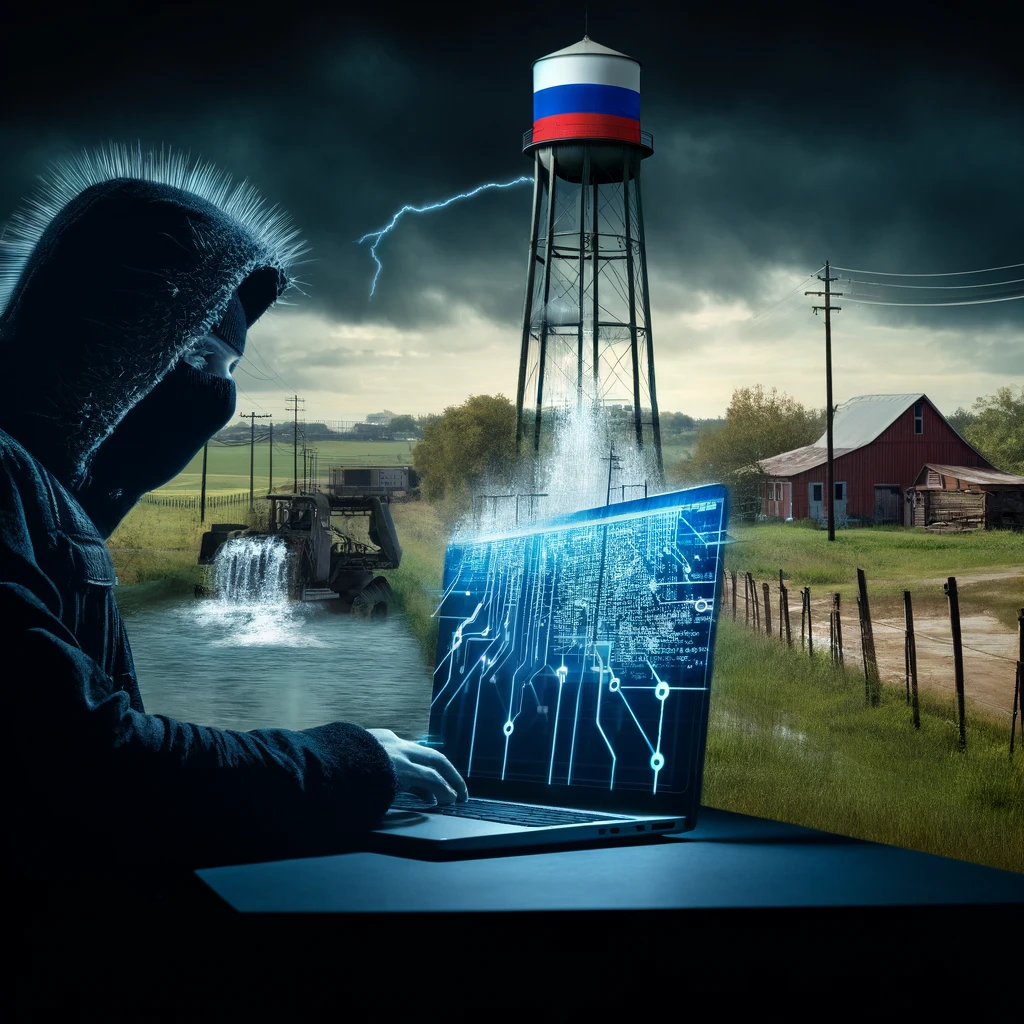Rising Cyber Threats: Russian Hacktivist Group Targets Texas Water Systems
Charles M. Walls | April 22, 2024 | Views: 148

A small Texas town's water system recently became the target of a hacking incident, attributed to a covert Russian group known for its cyber activism. This event is part of a worrying trend where U.S. public utilities are increasingly vulnerable to international cyber threats.
The breach occurred among three small communities in the Texas Panhandle, although local officials assured that there was no danger to the public. The breaches were promptly reported to federal authorities. "In just four days, there were 37,000 attempts to breach our firewall," revealed Mike Cypert, the city manager of Hale Center, which has around 2,000 inhabitants. The city thwarted the hack by disconnecting and manually controlling the system.
In a similar incident in Muleshoe, located about 60 miles west of Hale Center and home to roughly 5,000 people, hackers managed to overflow the water system before control was regained manually. Muleshoe's city manager, Ramon Sanchez, reported that the situation was quickly contained and the city's water disinfection processes were unaffected.
These hacking attempts have been linked by Mandiant, a prominent U.S. cybersecurity firm, to a mysterious Russian group identified as CyberArmyofRussia_Reborn. This group is also thought to be associated with Russian military cyber operations. They have claimed responsibility for other unnoticed January attacks on water infrastructures in the United States and Poland.
Researchers indicate that CyberArmyofRussia_Reborn and similar groups have ties to the Russian government and were active last year in attacks against Ukraine and its allies. These included denial-of-service attacks that disrupted websites temporarily, a tactic often attributed to Russian military intelligence operatives by entities including Microsoft.
In response to the incidents, Cypert has cooperated with the FBI and the Department of Homeland Security (DHS), although the FBI has withheld comments and DHS has directed inquiries back to the local cities involved. Another nearby city, Lockney, successfully prevented hackers from accessing its water system, according to city manager Buster Poling, who described the attempt as merely a nuisance.
Last November, the Cybersecurity and Infrastructure Security Agency (CISA) issued a warning after similar cyberattacks linked to Iranian groups targeted U.S. water facilities. These incidents, which followed attacks on the healthcare sector, highlight the critical need for strengthened cybersecurity across all utilities and infrastructure, as emphasized by U.S. government officials.
Environmental Protection Agency (EPA) Administrator Michael S. Regan and Jake Sullivan, National Security Advisor to the President, have urged governors to fortify defenses against such cyber threats. Their communications stress the vulnerability of water and wastewater systems, which, while essential, often lack the resources for robust cybersecurity measures.
This series of cyberattacks underscores the ongoing risks and emphasizes the urgent need for advanced cybersecurity protocols to safeguard essential public utilities from both domestic and international threats.











